C# double type (which is returned by Math.Exp function) is a fixed-size type (64 bits), and so it cannot represent arbitrary large numbers. Largest number it can represent is double.MaxValue constant, and it's of order 10^308, which is less than what you are trying to compute (e^2000).
When result of computation exceeds maximum representable value - special "number" representing Infinity is returned. So
double x = Math.Exp(1200); // cannot represent this with double type
bool isInifinite = double.IsInfinity(x); // true
After you got this "infinity" - all other computations involving it will just return infinity back, there is nothing else they can do. So then whole expression Math.Pow(Math.Exp(1200), 0.005d)) returns "infinity".
When you try to write result to console, it gets converted to string. The rules for converting mentioned infinity to string are as follows:
Regardless of the format string, if the value of a Single or Double
floating-point type is positive infinity, negative infinity, or not a
number (NaN), the formatted string is the value of the respective
PositiveInfinitySymbol, NegativeInfinitySymbol, or NaNSymbol property
that is specified by the currently applicable NumberFormatInfo object.
In your current culture, PositiveInfinitySymbol is likely "∞", but your console encoding likely cannot represent this symbol, so it outputs "?". You can change console encoding to UTF8 like this:
Console.OutputEncoding = Encoding.UTF8;
And then it will show "∞" correctly.
There is no framework-provided type to work with arbitrary sized rational numbers, as far as I know. For integer there is BigInteger type though.
In this specific case you can do fine with just double, because you can do the same thing with:
Console.WriteLine(Math.Exp(1200 * 0.005d));
// outputs 403.4287934927351
Now there are no intermediate results exceeding capacity of double, and so it works fine.
For cases where it's not possible - there are third party libraries which allow to work with arbitrary large rationals.
